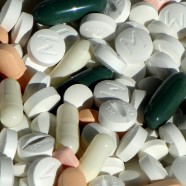
Society at large faces a common problem—drugs deplete essential nutrients. The challenge people and health care practitioners face; is not knowing which nutrients are being robbed by medications. Nutritional deficiencies from prolonged drug usage are a major side effect and concern.
Drug-Induced Nutrient Depletion (DIND)
More than 1,000 of the most commonly prescribed medications (despite being effective and even life-saving) produce a reaction known as drug-induced nutrient depletion (DIND), a problem far more common than acknowledged.1
Key Factor in Medication Side-Effects
In fact, the nutrients depleted are actually responsible for at least thirty percent of the side effects experienced from the medications themselves. It is important to recognize and be proactive in replenishing essential vitamins/minerals that can be lost. In doing so, those who must remain on certain drugs or who are in the process of transitioning from their usage lessen the risk of potential side effects while maintaining (and even increasing) the effectiveness of the medication.
How to Medications Rob the Body of Nutrients
You may wonder how medications rob nutrients from our body. There are primarily two ways. First, they can inhibit nutrient absorption by altering the environment of our digestive tract and affecting digestive stomach secretions (acid blockers and proton pump inhibitors), impairing the nutrients absorbed from protein, carbohydrates and fat.
Another way is by the drugs binding to nutrients and preventing them from being absorbed, such as cholesterol resins (medication to lower cholesterol) binding to bile in the intestines. This action blocks the absorption of fat soluble vitamins and folic acid.
Who is at Most Risk?
The patients at most risk for these types of complications are seniors because they take the most medications overall; however, children, pregnant women and anyone with chronic disease will find themselves at a higher risk of drugs affecting their bodies’ nutritional health.
Medications that Increase Nutritional Requirements
Despite being designed as a remedy, prescription medications have their own list of complications. The most common drugs used in conventional treatments of bowel disorders are corticosteroids and sulphasalazines. They are also prescribed for rheumatoid arthritis and fibromyalgia, among other conditions. Both medications are known to increase the nutritional requirements of the body.
For example, corticosteroids are known to stimulate the decomposition of proteins (catabolism), hinder protein formation and decrease the absorption of calcium and phosphorus, while increasing the urinary excretion of vitamin C, calcium, potassium, and zinc. In addition, they increase blood glucose levels, serum triglycerides and serum cholesterol, as well as increase the requirements for vitamin B6, ascorbic acid, folate and vitamin D.
Corticosteroids have also been shown to decrease bone formation and impede wound healing. Sulphasalazine medications have revealed restrictions in the assimilation and transport of folate (or folic acid), a B vitamin commonly found in liver and vegetables. Sulfa drugs also reduce serum folate and iron, while escalating the urinary excretion of ascorbic acid.
1. Dr. Jonathan Wright, Bio-identical hormone expert – Thyroid Summit. http://www.naturalnews.com/045370_Jonathan_Wright_natural_medicine_Thyroid_health.html#ixzz4RDoPVdJY
Copyright © 2022 – All Rights Reserved – Michelle Honda Ph.D.
Announcement
Look for my new book “Reverse Depression Naturally” (Spring 2020) “Reverse Inflammation Naturally” (May 31, 2017) “Reverse Thyroid Diseases Naturally” (June 2018) “Reverse Alzheimers/Dementia Naturally” (Nov.2018) “Reverse Heart Disease Naturally” (Jan.31, 2017) and “Reverse Gut Diseases Naturally Nov. 2016
Where to Purchase:
Reverse Gut Diseases Naturally Nov. 2016
Reverse Heart Disease Naturally Jan. 2017
Reverse Inflammation Naturally May 2017
Reverse Thyroid Disease Naturally June 28/2018
Reverse Alzheimers Disease Naturally Nov. 2018
Reverse Depression Naturally Spring 2020
Hatherleigh Press Page Buy Book RGDN
Local Book Stores in US and Canada
Disclaimer
While close attention was given to the accuracy of information in this article, the author accepts neither responsibility nor liability to any person with respect to injury, damage, loss or any circumstances involving alleged causes directly or indirectly related to the information in this article. The sole purpose is to educate and broaden ones awareness. This information is not meant to replace medical advice or services provided by a health care professional.





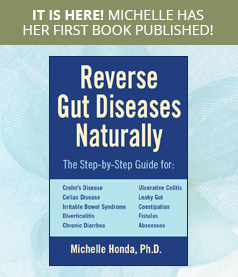

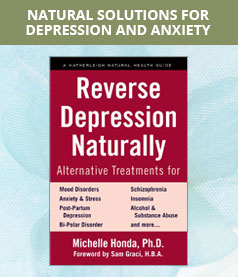
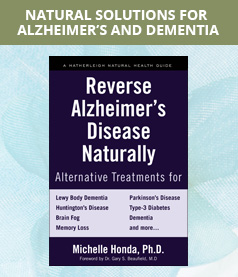
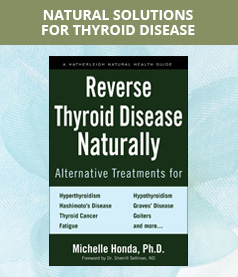

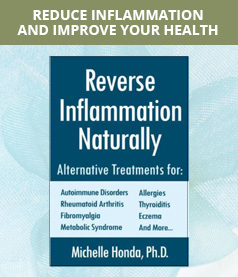
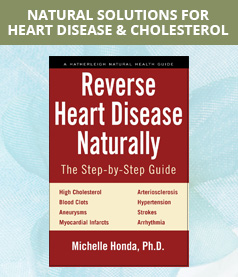
Follow Us!